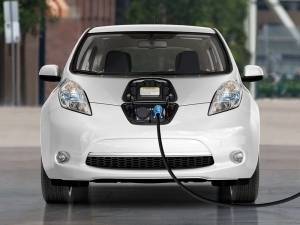Sharp rise in electric car disposal fees sparks public outcry
Review
−
07 February 2025 10621 5 minutes
Starting May 1, 2025, Uzbekistan will significantly increase disposal fees for imported electric cars. The Cabinet of Ministers' resolution on financing infrastructure for the disposal of electric vehicle batteries has sparked widespread public debate. Many argue that the sudden price hike will negatively impact Uzbekistan’s emerging electric vehicle (EV) market, which is seen as both economically promising and environmentally beneficial.
Public activists and bloggers have raised concerns about the new policy, questioning the lack of transparency in how disposal fees have been used since their introduction in 2020. Critics are also highlighting the privileges granted to BYD Uzbekistan, a major local EV assembler, which remains exempt from all disposal fees. They ask whether Uzbekistan has sufficient disposal infrastructure, where collected funds have been directed, and whether the batteries of domestically assembled BYD vehicles pose environmental risks.
According to the new resolution, the disposal fee for imported electric cars will now range from 45 million to 78.5 million soums, depending on the vehicle’s production year. Previously, the fee for electric cars less than three years old was 11.25 million soums, but this will now increase to 45 million soums. For electric cars older than three years, the fee will rise from 33.75 million soums to 78.75 million soums.
Preferential Treatment for BYD Uzbekistan?
A key concern is the exemption granted to BYD Uzbekistan under a Presidential decree issued on December 19, 2022. This decree exempts locally assembled electric and hybrid cars from disposal fees and customs duties on imported components until January 1, 2030. Critics argue that this policy creates an unfair market advantage for BYD Uzbekistan while burdening other importers with steep new fees.
Economist Otabek Bakirov has been one of the most vocal critics. In a Telegram post, he described the fourfold increase in disposal fees as a hypocritical and harmful move, especially considering Uzbekistan's natural gas shortages and rising fuel prices. He labeled the policy another non-tariff restriction favoring BYD Uzbekistan.
“Regardless of the justification, this move directly benefits BYD Uzbekistan, which operates as a speculator rather than a true manufacturer by importing and reselling electric cars. It enjoys special privileges, including exemption from disposal fees," Bakirov wrote.
He also pointed out that UzAuto Motors, another dominant player in Uzbekistan’s car market, has historically received similar exemptions through undisclosed government decisions.
"At a time when Uzbekistan is actively working to join the World Trade Organization (WTO), this policy sends a contradictory and hypocritical message that could damage the country’s international image," he added.
Legal Concerns and Public Doubts
Lawyer Kamoliddin Abdumalikovich also criticized the policy, arguing that it contradicts global trends.
“While other countries are subsidizing electric vehicles to encourage adoption, Uzbekistan is making them more expensive for consumers,” he said.
He also raised long-standing questions:
Is there any real recycling infrastructure in Uzbekistan?
Where is the money from disposal fees being used?
If disposal fees keep increasing, why has there been no visible progress in recycling?
Blogger Umid Gafurov also demanded accountability from officials, stating that since 2020, over 231,000 cars have been imported into Uzbekistan. “Where has the disposal money gone? There are no car recycling sites, and no infrastructure for battery disposal, so what is this money being used for?” he asked.
He further pointed out inconsistencies in UzAuto Motors’ production record, stating that the company has produced over 1.6 million cars since 2020. "If they had paid at least $700 per vehicle in disposal fees, the total amount would exceed $1 billion—yet they pay nothing. Who is covering these costs?" Gafurov questioned.
Economist Otabek Bakirov echoed similar concerns, emphasizing that the disposal fee has never been transparently included in the national budget.
"For five years, we have no clear record of who is collecting this money, where it is being distributed, and how it is being used," he said.
Impact on WTO Accession
Bakirov also highlighted the role of Deputy Prime Minister Jamshid Khojayev, who is overseeing Uzbekistan’s WTO accession process.
“How will Khojayev justify this sudden increase in import restrictions, which contradicts WTO trade principles? Will Uzbekistan’s WTO accession be delayed because of hidden privileges for local monopolists?” Bakirov asked.
Lawyer Bektosh Khatamov strongly criticized the monopolistic influence in Uzbekistan’s car industry, stating that corruption and favoritism are clear in the new disposal policy.
“The pattern is predictable:
A specific brand starts dominating the market.
A local company partners with the brand and starts assembly operations, even if it’s not actual manufacturing.
Other brands enter the market, offering cheaper and more compact alternatives.
Suddenly, a disposal fee is introduced, but only on imports.
When competition grows, the disposal fee is steeply increased to push competitors out,” he said.
Khatamov concluded by saying that government resolutions with the phrase “additional measures for development” often result in greater market restrictions.
Lawyer Khairulla Qosimov questioned the legality of the new fees, citing Article 63 of the Uzbek Constitution, which states that taxes and fees must be fair and must not violate citizens' rights.
“For the disposal fee to be fair, the government must justify why 45 to 78 million soums are necessary for recycling a single electric car. Where is the evidence that this money is used for environmental protection?” he asked.
He also questioned why only imported electric cars are subject to the disposal fee, while locally assembled EVs are exempt, despite posing the same environmental risks. “If the goal is environmental protection, why do only importers have to pay?” Qosimov argued.
Live
All




